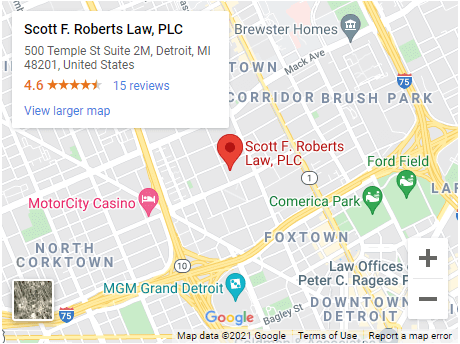Following its new rule proposals from the summer session, the MRA has finalized new regulations that will make some significant changes to many processes under MRA control. These changes will affect the entire application procedure, from costs to the structure of the applications themselves. These rules are now finalized and are set to take effect this Monday, March 7th, 2022.
Fees
Current and potential licensees will be most focused on the fee changes that come with these new rules. The base prequalification application fee will be reduced by 50%, from $6,000 to $3,000, lessening the burden on potential licensees to enter the industry. Current licensees will be pleased to see reductions to initial licensing and renewal fees across the board. Notably, Class C Growers,’ Excess Growers,’ and Processors’ initial licensing and renewal fees are reduced from $40,000 to $24,000. In addition to these reductions, the tiered renewal system is being entirely removed from the fee structure, meaning that the initial licensing fee will also serve as the renewal fee. This will avoid the top third of any given license type being forced to pay over 20% more for their renewal. These reductions reflect the MRA’s recognition that the hurdles to enter the industry are simply too high currently and detrimental to all the players involved.
Class A Marijuana Microbusiness License
The highly anticipated adult-use Class A Microbusiness license will also become available on Monday, March 7th. This new license type is similar to the original cannabis microbusiness in that licensees are meant to produce and sell their products at the same location but differs in the scale of operations. The Class A cannabis Microbusiness license boasts higher plant caps, the power to purchase mature plants from other growers to maintain viable supply, and the ability to utilize outside processors to make more products from their cannabis. The license/renewal fee for this new type of license will be $18,600 – just as the rule’s proposal indicated.
Marijuana Educational Research License
Another new type of license that will be established on Monday is the adult-use marijuana educational research license. This license grants privileges one would expect, allowing a licensee to grow and conduct research on cannabis for educational purposes. Cannabis produced by an educational research licensee cannot be consumed and must be destroyed after research has concluded. To obtain this license, an applicant must receive accreditation from the Higher Learning Commission and register their research with the DEA. There are no application, license, or renewal fees associated with this license.
Changes to Application
The adult-use application is being modified to mirror the disclosure requirements for medical more closely. The threshold for disclosure is also lowered in the new rules to 2.5%, this means that any individual that holds over 2.5% interest in the applicant entity must follow proper disclosure requirements. Anyone with below 2.5% interest may avoid disclosure.
The MRA has also added an ability for itself to administratively withdraw any application that is over one year old and has no determination made. Renewal applications may also be denied now for failure to submit the required annual financial statements prior to renewal process.
Inspection Enforcement
The MRA is also making updates to its inspection documents, adding new checklists for prelicensure inspections, 30-day inspections, semi-annual inspections, and SCF inspections that must be adhered to in order to avoid MRA disciplinary action. These checklists will be made available on the MRA website this Monday, March 7th.
Sampling and Testing
Greater freedom is being granted to licensees in the sampling and testing field. The biggest change is that final testing does not need to be performed every time cannabis product leaves a cannabis facility if it is not going to a retailer location. This means cannabis products purchased, sold, and transferred within the market, before reaching any consumers, do not need to pass final, full safety compliance.
Operations
New allowances have been made affecting day to day operations of cannabis facilities. Notably and likely in response to COVID-19 protocols, contactless and curbside retailer space is now permanently allowed under the MRA rules. A retailer need only gain municipal permission to add this operation to their business. Updates to the Standard Operating Procedures will also be enacted, including a new stipulation that any cannabis product ordered to be destroyed must actually be destroyed within 90 days to avoid disciplinary action. Given the volume of changes, the MRA warns its system may experience failure as licensees rush to absorb the updates. There will be additional instructional guidance on how to make a Request for Declaratory Ruling from the MRA, as well as extra requirements to packaging and labeling of edible cannabis products.
The rule changes are vast and seem to affect almost every aspect of the cannabis industry in Michigan. Interested or concerned parties of these new rules may feel overwhelmed by everything the MRA is changing. For this reason, it is prudent to consult with knowledgeable individuals on these complicated matters. The skilled attorneys of Scott Roberts Law have the exact experience and knowledge required to navigate any uncertainties that these new rules may cause.




